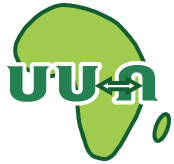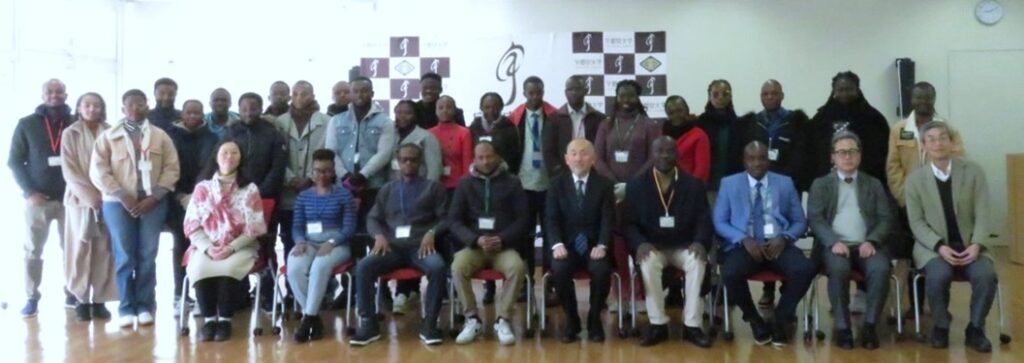“Advanced Agri-Science and Agribusiness Contributing to SDGs × Agriculture”
The Center for International Exchange Office and Inter-University Exchange Project Promotion Office in Utsunomiya University held the “Advanced Agri-Science and Agribusiness Contributing to SDGs × Agriculture”, which was adopted by the Sakura Science Program (https://ssp.jst.go.jp/en/), from February 12 to 21, 2025.
Four students from Jomo Kenyatta University of Agriculture and Technology (JKUAT, Kenya), three students and one faculty member from Meru University of Science and Technology (MUST, Kenya), two students and one faculty member from Addis Ababa University (AAU, Ethiopia), for a total of 11 participants were invited. The invited students were selected from graduate students who had achieved excellent results in the “Global Management” course offered under the “Programme for Developing Human Resource to Contribute to SDGs by Merging African Potential and Japanese Scientific Technology” (UU-A), a joint project between Utsunomiya University and six African universities.
The program schedule was as follows.
Wednesday, 12th, the first day
Members of JKUAT and MUST departed from Nairobi on Tuesday, February 11, joined with AAU members at Addis Ababa Airport, and arrived at Narita Airport on Wednesday, February 12. They will further travel to Utsunomiya by bus.
Thursday, 13th, the second day
In the morning, after the formalities, an orientation was held and Dean Prof. Yamane of the School of Agriculture gave an overview of Utsunomiya University.
Lunch was served in the Co-op cafeteria.
In the afternoon, Dr. Fukasawa gave a lecture on state-of-the-art Molecular Agriculture and Bioinformatics at the Bioscience Education and Research Center, and they observed cutting-edge genetic equipment and genetically modified organisms.
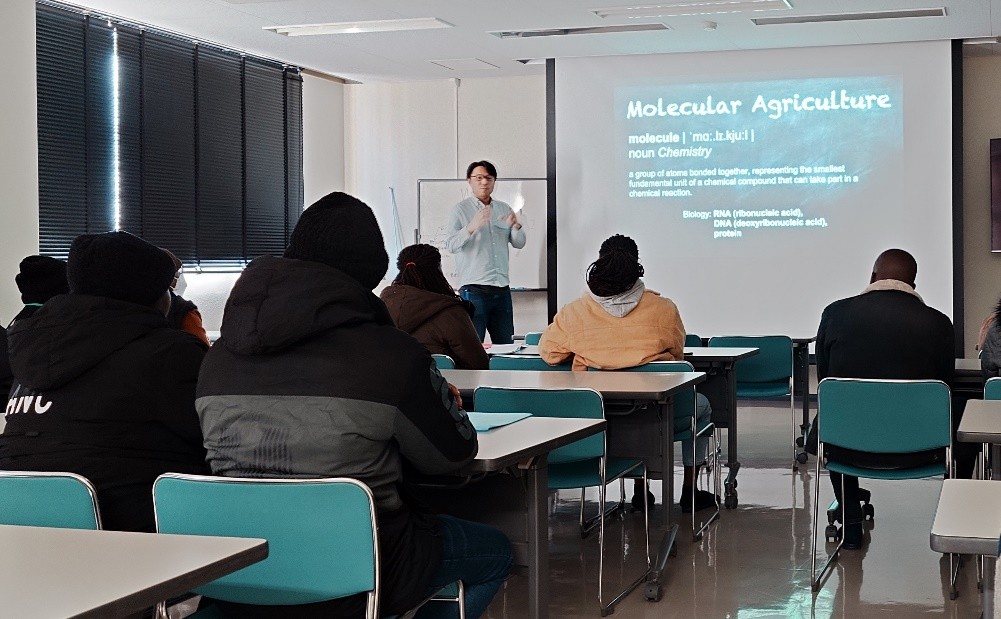
At 10:30 am, Dr. Kurokura gave a lecture on “Genome Editing and Breeding of Crops” and discussed genetically modified plants.
In the afternoon, an experiment was carried out to compare the genome-edited tomatoes with their original varieties to confirm that the nutrient (GABA) was indeed increased in GE tomatoes.
At 5:00 pm, attend the opening ceremony of the UU-A Student Summit 2025.
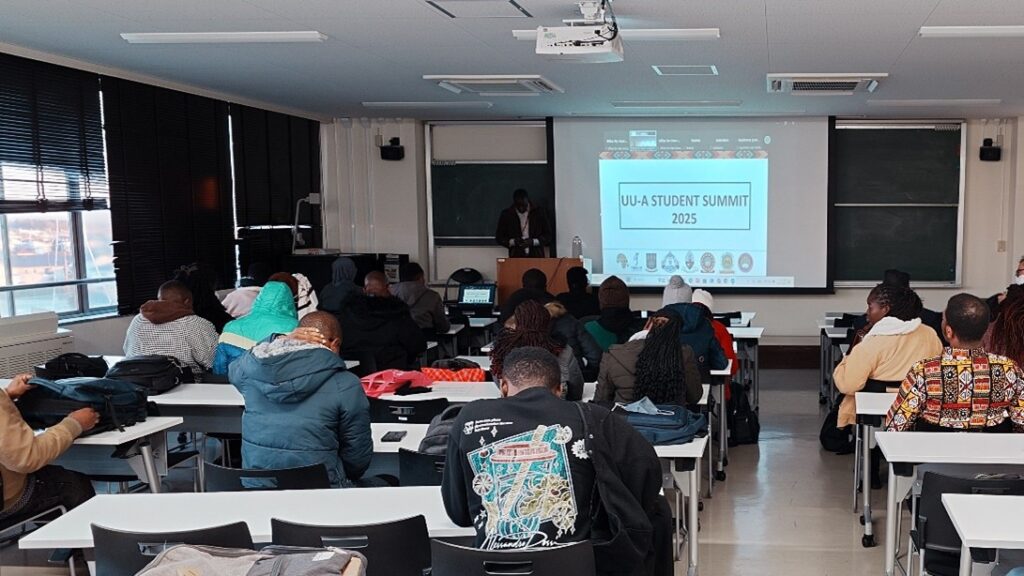
Saturday, 15th, the 4th day
In the morning, the participants visited Agri-Station Seiwa to see state-of-the-art horticulture facilities and observe production sites that utilize agri-science as an integrated science.
In the afternoon, participants actually experienced strawberry picking at the Mashiko Strawberry Estate and observed an agribusiness site that combines strawberry cultivation technology and tourism in Tochigi Prefecture, which boasts the largest production volume in Japan.
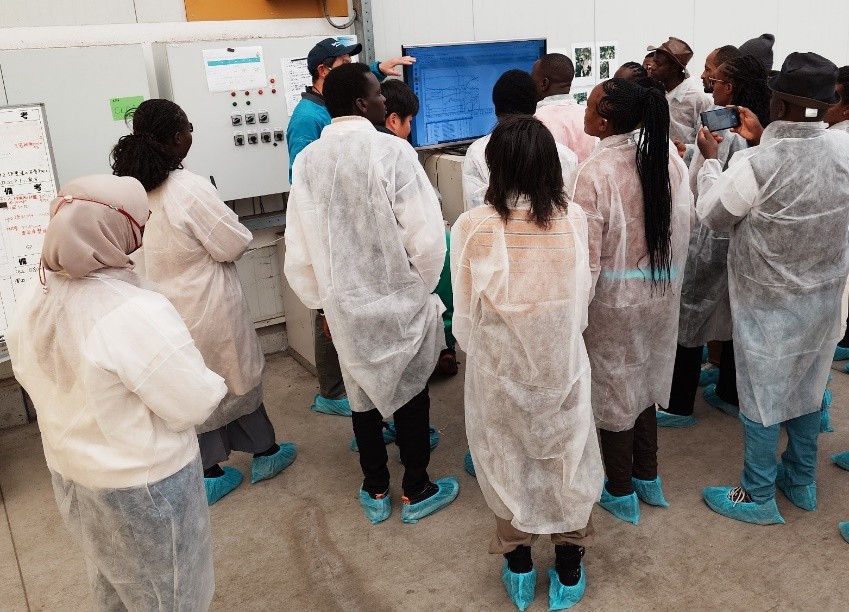
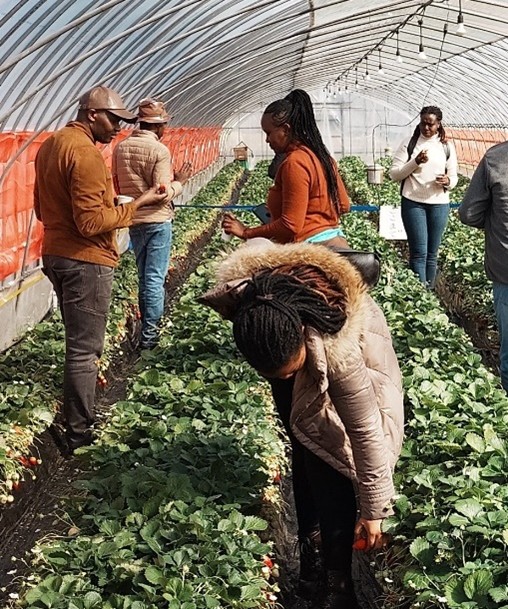
Sunday, 16th, the 5th day
In the morning, Dr. Oshima gave a lecture on sustainable forestry production at Utsunomiya University, entitled “Sustainable Forestry Production at Utsunomiya University,” at the Funyu Experiment Forest attached to the School of Agriculture, Utsunomiya University. Afterwards, they interacted with students of the Department of Forest Science at the Loud Voice Competition.
Lunch was served at “Nico Nico Honjin” at the roadside station Nikko, the forefront of agribusiness.
In the afternoon, the participants visited Nikko Toshogu Shrine, where they learned about Japanese history, experienced Nikko’s nature, and had an opportunity to think about collaboration between tourism and agriculture.
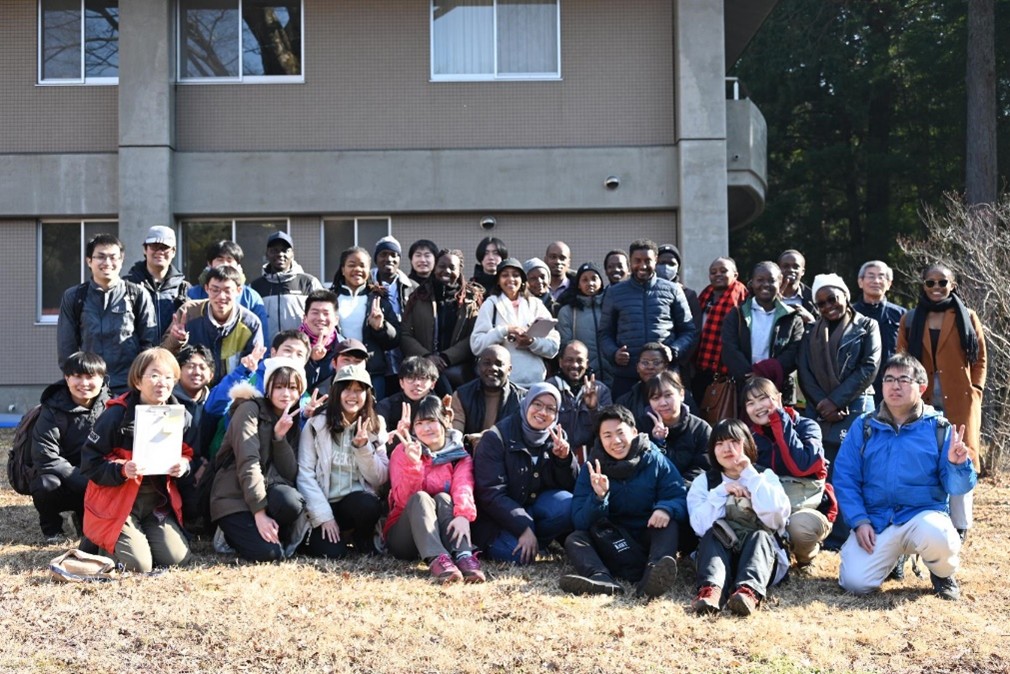
Monday, 17th, the 6th day
In the morning, visited the farm attached to the School of Agriculture, Utsunomiya University, with UU-A invited faculty members and students, and listened to Dr. Ikeda’s lecture “Unraveling Onion Productivity through Genetic Analysis”. During the farm tour, they were interviewed by a reporter from the Japan Agricultural News.
In the afternoon, RNA extraction from onions and reverse transcription-PCR were tested to check the expression of genes involved in onion enlargement.
At 5:00 pm, attend the on-demand “UU-A Student Summit 2025” Symposium I.
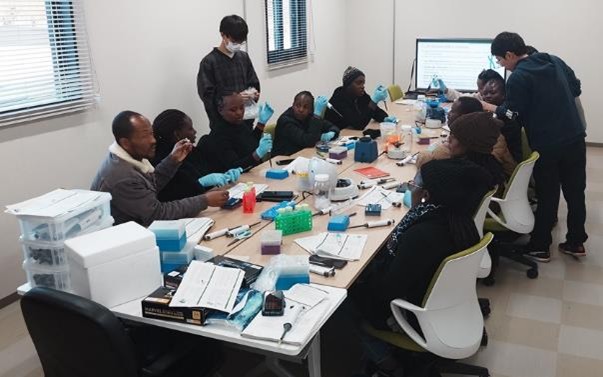
Tuesday, 18th, the 7th day
In the morning, Dr. Neriya gave a lecture on “Diagnosis and Detection of Plant Diseases”.
In the afternoon, in the experiment “Genetic Detection of Plant Viruses”, genomic RNA of cucumber mosaic virus, which is also widespread in Africa, is tested by RT-PCR and coat protein by ELISA.
At 5:00 pm, attend the on-demand “UU-A Student Summit 2025” Symposium II.
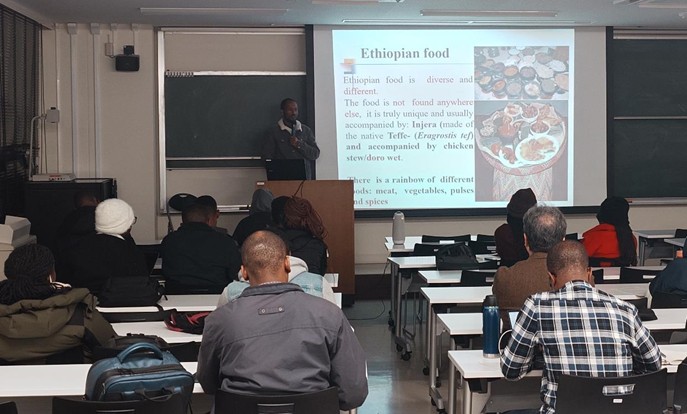
Wednesday, 19th, the 8th day
In the morning, the group listened to Prof. Natsuaki’s lecture, “Development of Vaccines to Control Crop Diseases and One-Health,” and Prof. Sonoda’s lecture, “Insecticide-Resistant Agricultural Pests and Management by Natural Enemies.
In the afternoon, as on the previous day, the genomic RNA of the virus was tested by RT-PCR and the coat protein by ELISA.
At 5:00 pm, attend the on-demand “UU-A Student Summit 2025” Symposium III.
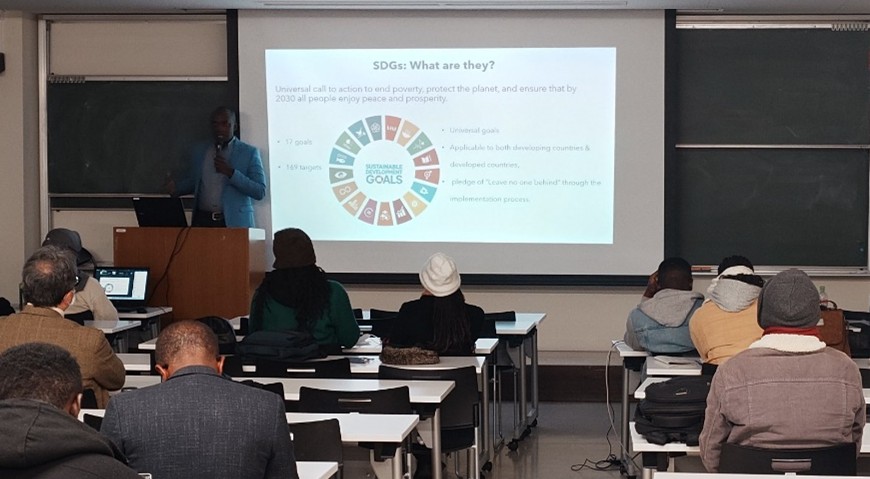
Thursday, 20th, training day 9
In the morning, the summarized the contents of the training up to this point and prepared materials for the presentation of the results of activities. They also participated in the UU-A Student Summit.
In the afternoon, 11 participants invited under this program reported on their experiences at Utsunomiya University at the session of Activity Report of SAKURA SCIENCE PROGRAM. They also interacted with faculty members and students of Utsunomiya University and those invited by UU-A, and participated in the closing ceremony of the Student Summit and the awarding ceremony of the Best Presentation Award.
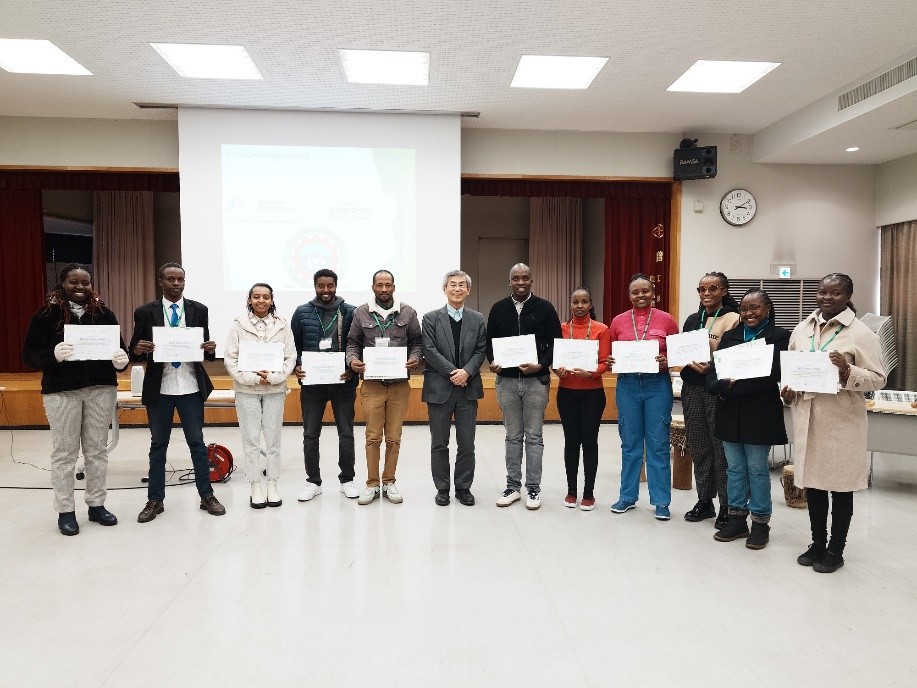
Friday, 21st, the final day
The participants traveled by bus from Utsunomiya to Tokyo, visited the National Museum of Emerging Science and Innovation (Miraikan), and departed for home from Narita Airport after 8 pm, arriving safely in Nairobi via Addis Ababa the next day.
Finally, I would like to express my deepest gratitude to JST and the Sakura Science Program for giving us the opportunity to develop exchange between the three African universities and Utsunomiya University, and to all involved for their efforts in implementing the program.
Utsunomiya University will continue to strengthen its ties with Africa and other parts of the world in order to develop human resources who can contribute to the establishment of sustainable and productive agriculture for the realization of the SDGs.
The activities of this program are also reported in the North Kanto edition of the Japan Agricultural News on Thursday, February 20.
